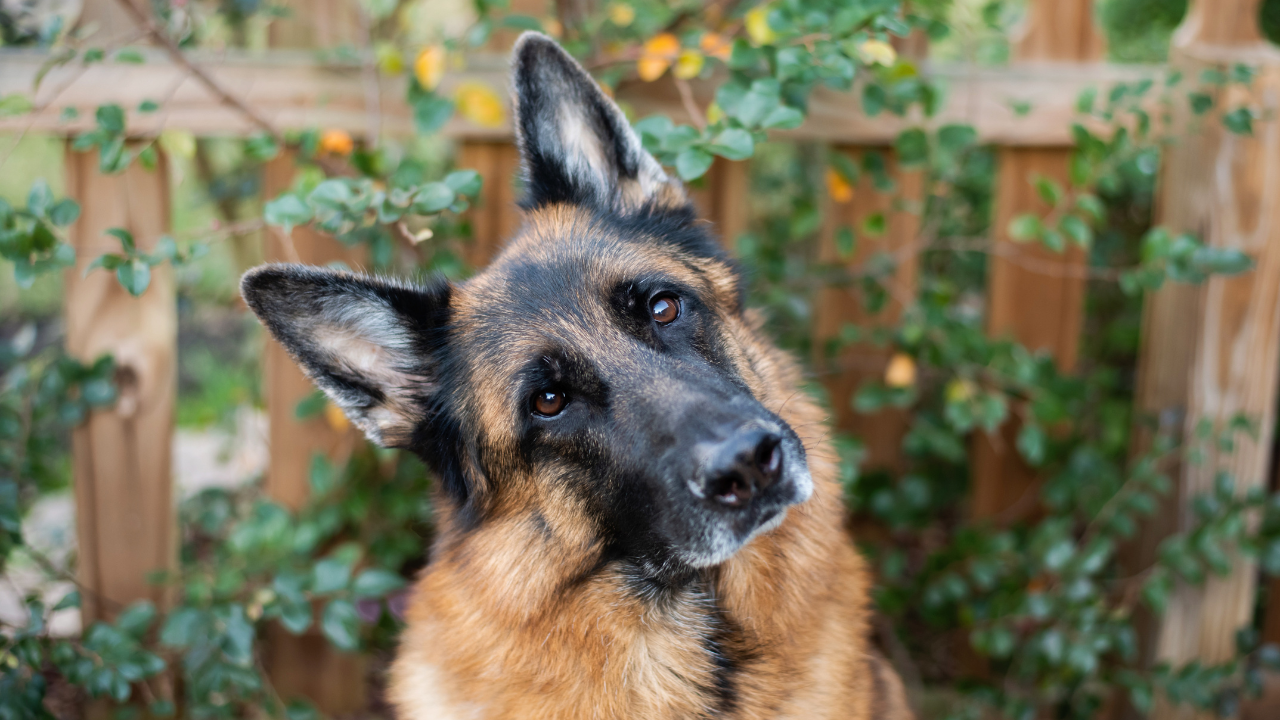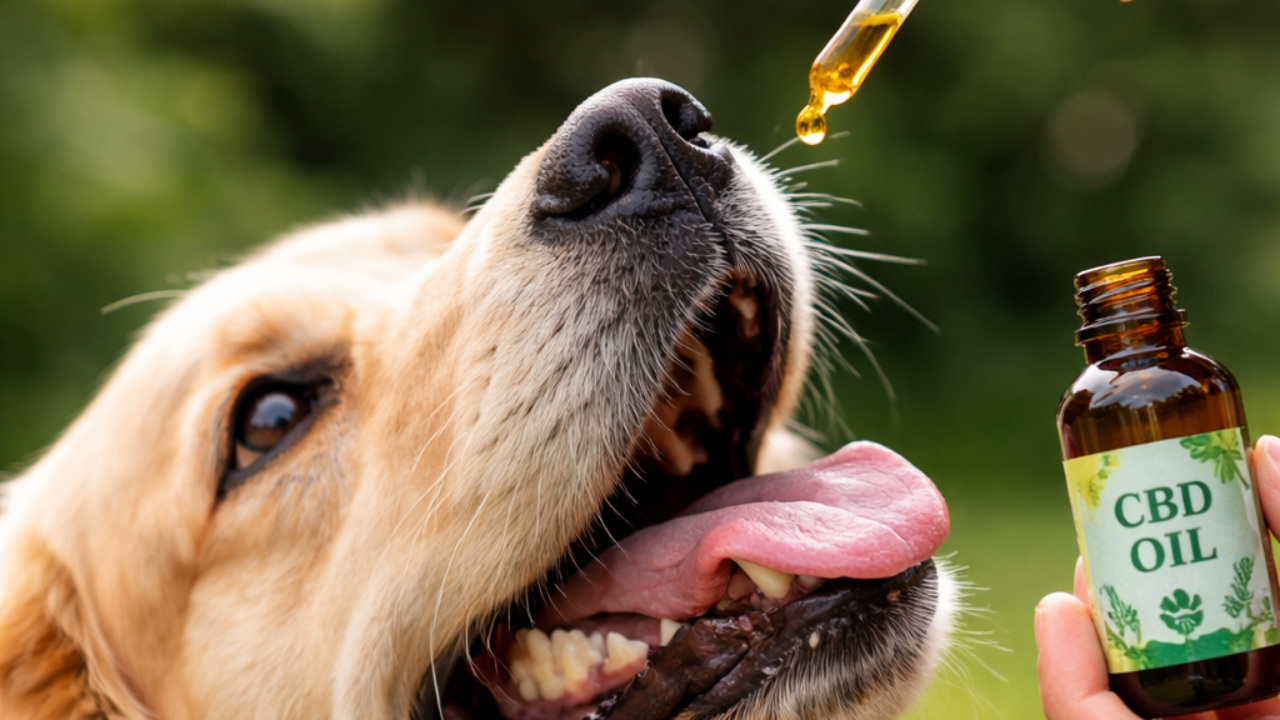Self-Care for Dog Cancer Caregivers
Sep 02, 2025
When your beloved dog receives a cancer diagnosis, your world suddenly revolves around veterinary appointments, medication schedules, and monitoring symptoms. Every decision feels weighty, every change concerning. You find yourself researching treatments late into the night, adjusting your schedule around your dog's needs, and putting your own life on hold.
While this dedication comes from a place of deep love, the emotional and physical toll of caregiving can be overwhelming.
Company in a World of Caregivers
You're not alone in feeling exhausted, anxious, or emotionally drained. Recent research shows that owners of dogs and cats undergoing cancer treatment experience significant caregiver burden, with nearly 26% reporting severe levels of stress that impact their daily functioning (Tam et al., 2024). What's more, this stress doesn't just affect you—it can actually impact your ability to provide the best care for your dog.
The truth is, taking care of yourself isn't selfish; it's essential. When you're running on empty, you can't be the advocate, caregiver, and companion your dog needs. Read on so we can help you recognize the signs of caregiver stress, understand why self-care matters, and provide practical strategies to maintain your mental, physical, and emotional health while caring for your dog with cancer.
Understanding Pet Caregiver Burden
Pet caregiver burden is more than just feeling stressed about your dog's illness—it's a measurable condition that affects your psychological, social, and physical well-being.
Research consistently shows that owners caring for seriously ill pets experience elevated stress, symptoms of anxiety and depression, and poorer quality of life compared to those with healthy pets (Spitznagel et al., 2017).
The Reality of the Numbers
The statistics reveal just how common and serious caregiver burden can be:
- Moderate to severe burden affects 26-40% of pet cancer caregivers, with scores indicating clinically meaningful stress levels (Tam et al., 2024)
- Over half of all caregivers report that caregiving interferes with their mental health, making it difficult to care for themselves (AARP, 2023)
- 40% of caregivers say they never or rarely relax, and an equal number report feeling alone in their caregiving role (AARP, 2023)
- Nearly half of caregivers experienced suicidal ideation during the pandemic, highlighting the severity of caregiver stress (Seniorly, 2023)
These aren't just numbers—they represent real people, like you, who are struggling with the weight of caring for someone they love deeply.
What Caregiver Burden Looks Like
Caregiver burden manifests in several ways, and recognizing these signs is the first step toward addressing them:
Emotional symptoms include persistent worry, guilt about your caregiving performance, feeling overwhelmed by decisions, anxiety about your dog's future, and a sense of grief that begins even before loss occurs—known as anticipatory grief (Association for Pet Loss and Bereavement, n.d.).
Physical symptoms often include chronic fatigue, frequent headaches, changes in appetite or sleep patterns, getting sick more often due to a weakened immune system, and physical tension or pain from stress (Cleveland Clinic, 2025).
Social and behavioral changes might involve withdrawing from friends and activities you once enjoyed, irritability with family members, difficulty concentrating at work, and feeling like your entire identity revolves around your dog's illness (Spitznagel et al., 2019).
Financial stress compounds the emotional burden, as cancer treatment can be expensive and most pet insurance doesn't cover pre-existing conditions. The stress of choosing between your dog's medical needs and other financial obligations adds another layer of burden (PetMD, 2022).
The Hidden Cost of Putting Yourself Last
Many dedicated pet parents believe that focusing on their own needs somehow takes away from their dog's care. This couldn't be further from the truth. Research shows that caregiver burden doesn't just harm you—it can negatively impact your pet's care and your relationship with your veterinary team.
How Caregiver Stress Affects Your Dog
When you're overwhelmed and depleted, several things can happen:
Decision-making becomes impaired. Chronic stress affects your cognitive function, making it harder to process information from your veterinary team and make informed decisions about your dog's care (Steffey et al., 2023).
Communication with your vet suffers. Stressed caregivers may have difficulty articulating concerns, remembering instructions, or advocating effectively for their pet's needs.
Consistency in care may slip. When you're exhausted, it becomes harder to maintain medication schedules, monitor symptoms accurately, or provide the consistent care your dog needs.
Your emotional state affects your dog. Dogs are incredibly sensitive to their owners' emotional states. Your stress and anxiety can increase your dog's own stress levels, potentially impacting their comfort and well-being.
The Burden Transfer Effect
Veterinary researchers have identified a phenomenon called "burden transfer," where the stress experienced by pet caregivers gets transferred to the veterinary team through difficult interactions (Spitznagel et al., 2023).
When you're overwhelmed, appointments may become more challenging, communication more difficult, and the entire care team more stressed—ultimately affecting the quality of care your dog receives.
The Science of Self-Care: Why It Works
Self-care isn't a luxury—it's a necessity backed by solid research. Studies consistently show that caregivers who engage in regular self-care practices experience:
Better mental health outcomes, including reduced anxiety and depression symptoms (AARP, 2023) Improved physical health, with lower blood pressure, better sleep, and stronger immune function enhanced decision-making ability and cognitive function under stress More positive relationships with family members and healthcare providers provide greater resilience when facing ongoing challenges
The key is understanding that self-care for caregivers isn't selfish—it's strategic. You're investing in your ability to provide better care for your dog while preserving your own well-being.
Building Your Self-Care Foundation
Effective self-care for pet caregivers involves multiple dimensions: physical, emotional, social, and practical. The goal isn't perfection—it's progress and sustainability.
Physical Self-Care: Your Body Needs Attention Too
Your physical health forms the foundation of your ability to cope with stress and provide care. Research shows that over half of caregivers who engage in regular exercise report it helps them manage stress effectively (AARP, 2023).
Prioritize sleep, even when worry keeps you awake. Create a bedtime routine that doesn't involve researching your dog's condition. Consider relaxation techniques or apps designed to help with sleep. If sleep problems persist, talk to your doctor—chronic sleep deprivation makes everything harder.
Move your body regularly, even if it's just a 10-minute walk around the block. Exercise is one of the most effective stress relievers available, and it doesn't have to be intense to be beneficial. Yoga, gentle stretching, or walking can significantly impact your mood and energy levels (AARP, 2023).
Maintain basic nutrition, even when you don't feel like eating or are too busy to cook. Keep easy, healthy options available: nuts, fruits, yogurt, or pre-made meals. Stress depletes your body of nutrients, making good nutrition even more important during difficult times.
Stay hydrated and limit caffeine, especially late in the day. Dehydration can worsen fatigue and make stress feel more overwhelming.
Don't skip regular health appointments. It's easy to postpone your own medical care when focused on your dog's needs, but this can lead to bigger problems later. Nearly a quarter of caregivers report that their own health has worsened while caregiving (Seniorly, 2023).
Emotional Self-Care: Processing the Complex Feelings
Caring for a dog with cancer brings up intense, often conflicting emotions. Emotional self-care involves creating healthy ways to process these feelings rather than suppressing or being overwhelmed by them.
Acknowledge anticipatory grief as normal. Many pet parents experience grief-like symptoms even while their dog is still alive, especially when facing a terminal diagnosis. This "anticipatory grief" can include sadness, anxiety, anger, and guilt—all normal responses to impending loss (Association for Pet Loss and Bereavement, n.d.).
Practice self-compassion. Notice your inner dialogue. Are you being harder on yourself than you would be on a good friend in the same situation? Self-compassion involves treating yourself with the same kindness you'd show someone you care about.
Set realistic expectations. You don't have to be the perfect caregiver. There will be days when you feel overwhelmed, make mistakes, or need breaks. This doesn't make you a bad pet parent—it makes you human.
Keep a feelings journal or voice memos on your phone. Sometimes just getting thoughts and emotions out of your head and onto paper (or into words) can provide significant relief.
Consider professional counseling. Working with a therapist who understands pet attachment can be incredibly helpful. Many now offer telehealth options, making it easier to fit into your schedule (Lap of Love, n.d.).
Social Self-Care: You Don't Have to Do This Alone
Isolation is one of the most damaging aspects of caregiver burden. Humans are social beings, and maintaining connections is crucial for mental health.
Maintain relationships with people who understand. Not everyone will understand the depth of your bond with your dog or the stress you're experiencing. Focus your energy on relationships with people who validate your feelings and offer genuine support.
Join online support groups for pet cancer caregivers. These communities can provide practical advice, emotional support, and the comfort of knowing you're not alone. Facebook groups, Reddit communities, and specialized websites offer 24/7 connection with others who truly understand.
Join the Drake Dog Cancer group on Facebook by clicking here.
Don't isolate yourself from friends and family, even if they don't fully understand. Social connection is protective against depression and anxiety. Even brief interactions can help maintain your support network.
Consider asking for specific help. Instead of hoping others will offer, try asking for specific tasks: "Could you pick up my dog's medication on Tuesday?" or "Would you mind walking my other dog this weekend?" Most people want to help but don't know how.
Connect with your veterinary team. They're often your best allies in understanding your dog's condition and can provide not just medical guidance but emotional support as well.
Practical Strategies for Daily Management
Beyond the foundational self-care practices, specific strategies can help you manage the day-to-day challenges of caring for a dog with cancer.
Time and Energy Management
Create routines that work for both you and your dog. Predictable schedules reduce decision fatigue and help you manage care tasks more efficiently.
Use technology to your advantage. Medication reminder apps, symptom tracking tools, and calendar alerts can reduce the mental load of remembering everything.
Prepare for bad days. Have a plan for when your dog has a rough day or when you're feeling overwhelmed. This might include having your veterinary team's emergency number handy, knowing which friend to call for support, or having comfort items readily available.
Practice the "one thing" rule. On overwhelming days, commit to doing just one self-care activity. This might be taking five deep breaths, drinking a full glass of water, or stepping outside for two minutes.
Managing Information and Decision Overload
Limit your research time. While it's natural to want to learn everything about your dog's condition, endless internet searching can increase anxiety. Set specific times for research and stick to them.
Keep a questions list for veterinary appointments. When worries or questions arise between visits, write them down instead of ruminating on them.
Designate a decision-making support person. Choose one trusted person who can help you process information and decisions. Sometimes having someone else's perspective helps clarify options.
Create a communication system with your veterinary team. Know who to contact for different types of concerns and what information they need when you call.
Financial Self-Care
The of cancer treatment can be overwhelming, but there are ways to manage this burden:
Research assistance programs early. Many veterinary schools, breed-specific organizations, and general pet assistance programs offer financial help. Apply before you're in crisis mode.
Discuss payment plans with your veterinary team. Many practices offer financing options or payment plans that can make treatment more manageable.
Consider pet insurance for your other pets to prevent future financial stress, though remember it won't cover pre-existing conditions.
Set a realistic budget and communicate it clearly with your veterinary team. They can often suggest treatment modifications that fit your financial situation while still providing good care.
Coping with Anticipatory Grief
One of the most challenging aspects of caring for a dog with cancer is dealing with anticipatory grief—the mourning process that begins before actual loss occurs. This type of grief is completely normal but can be emotionally devastating (Association for Pet Loss and Bereavement, n.d.).
Understanding Anticipatory Grief
Anticipatory grief includes many of the same symptoms as grief after loss: denial, anger, bargaining, depression, and acceptance. But it also includes unique elements like shock at the diagnosis, hope for recovery, fear of the future, and anxiety about making the right decisions (Best Friends Animal Society, n.d.).
Recognize it's normal and healthy. Anticipatory grief doesn't mean you're giving up hope—it means you're processing the reality of your situation and preparing emotionally for what may come.
Focus on presence over future fears. While it's impossible to ignore the future completely, try to spend time fully present with your dog. These moments of connection can be healing for both of you (Grey Muzzle Organization, n.d.).
Create meaningful experiences together. Many caregivers find comfort in creating a "bucket list" of special activities to share with their dog, adapted to their current energy levels and physical capabilities.
Document your journey through photos, videos, or writing. These memories become precious, and the act of creating them can be therapeutic.
When Grief Becomes Overwhelming
If anticipatory grief is interfering with your ability to function, consider:
Professional grief counseling, specifically from counselors who understand pet loss Pet loss support groups, either in-person or online Temporary medication if anxiety or depression symptoms are severe Spiritual or religious support if that's meaningful to you
Remember that seeking help for anticipatory grief doesn't mean you're weak—it means you're taking steps to process these difficult emotions in healthy ways.
Building Your Support Network
Strong social support is one of the most important predictors of caregiver resilience. Building and maintaining this network requires intentional effort but pays enormous dividends.
Professional Support Team
Your veterinary team should be your primary professional support. Don't hesitate to ask questions, express concerns, or request additional resources. A good veterinary team wants to support not just your pet but your whole family.
A counselor or therapist familiar with pet attachment can provide professional mental health support. Many offer telehealth options for convenience.
Your primary care doctor should know about the stress you're experiencing. Caregiver stress can impact physical health, and your doctor needs this information to provide appropriate care.
Personal Support Network
Family members and close friends who understand your bond with your dog can provide both practical help and emotional support.
Other pet parents who have experienced similar situations can offer practical advice and emotional understanding that others may not be able to provide.
Online communities can provide 24/7 support and connection with others who truly understand your experience.
Professional pet care providers like pet sitters, dog walkers, or veterinary technicians can sometimes provide respite care when you need a break.
Recognizing When You Need Professional Help
While self-care strategies can be incredibly helpful, sometimes professional intervention is necessary. Don't hesitate to seek help if you experience:
Persistent thoughts of harming yourself or others - This requires immediate professional attention Inability to function in work, relationships, or basic self-care Substance abuse as a coping mechanism Complete loss of interest in activities that previously brought joy Physical symptoms like chest pain, severe headaches, or digestive issues related to stress Relationship problems that are getting worse despite your efforts
Professional help might include individual counseling, medication for anxiety or depression, or more intensive mental health services. There's no shame in needing additional support—it's a sign of wisdom and self-awareness.
Creating a Sustainable Long-Term Plan
Caring for a dog with cancer is often a marathon, not a sprint. Creating sustainable self-care practices is essential for the long haul.
Weekly Self-Care Planning
Set aside time each week to plan self-care activities, just as you plan your dog's medical care. This might include:
Scheduling non-negotiable self-care activities like exercise, social time, or relaxation Preparing for the upcoming week's medical appointments and care tasks Checking in with yourself about stress levels and adjusting plans as needed Connecting with your support network to maintain relationships
Monthly Check-ins
Once a month, do a more comprehensive assessment:
Review your self-care practices and adjust what's not working Assess your support network and strengthen connections where needed Evaluate your emotional well-being and consider whether additional professional support would be helpful Celebrate successes and acknowledge your efforts
Preparing for Difficult Decisions
Eventually, you may face difficult decisions about your dog's care or end-of-life choices. Preparing for these possibilities can reduce stress when the time comes:
Discuss your values and preferences with your veterinary team before you're in crisis Consider advance directives for your dog's care, including your preferences about different treatment scenarios Identify who will support you in making difficult decisions Think about practical arrangements like aftercare preferences, though these can always be changed
The Ripple Effect of Good Self-Care
When you take care of yourself, the benefits extend far beyond your own well-being:
Your dog benefits from having a more present, less stressed caregiver who can advocate effectively and provide consistent care.
Your family relationships improve because you have more emotional and physical energy to invest in these connections.
Your veterinary team can provide better care when working with a caregiver who is managing their stress effectively and communicating clearly.
Your other pets benefit from having a less stressed owner who can meet their needs too.
You model healthy behavior for others in your life who may face similar challenges in the future.
Moving Forward with Compassion
Caring for a dog with cancer is one of the most challenging things you may ever do. The combination of medical complexity, emotional intensity, and financial pressure can feel overwhelming. But remember: you chose to take on this challenge because of the deep love you have for your dog. That love is powerful, but it's not infinite—it needs to be replenished and protected.
Self-care isn't about being perfect or having all the answers. It's about recognizing that you're doing something incredibly difficult and deserve support, compassion, and care—including from yourself. You can't pour from an empty cup, and your dog needs you to stay as healthy and resilient as possible.
Every small act of self-care matters. Taking five deep breaths, drinking a glass of water, calling a friend, or stepping outside for fresh air—these aren't indulgences. They're investments in your ability to show up for your dog in the way they deserve.
The journey you're on is difficult, but you don't have to walk it alone. Reach out for support, be gentle with yourself, and remember that taking care of yourself is one of the most loving things you can do—both for yourself and for your beloved companion.
Your dog's love for you is unconditional, but that doesn't mean your sacrifice has to be unlimited. You can be a devoted, loving caregiver while also being a person who deserves care, rest, and support. In fact, the best caregivers are those who understand this balance and work to maintain it, even during the most difficult times.
Take a moment now to consider one small act of self-care you can do today. Your dog would want that for you, because their love for you includes wanting you to be happy, healthy, and whole. You deserve that kind of love—including from yourself.
If you're having thoughts of self-harm, please reach out for immediate help. Contact the National Suicide Prevention Lifeline at 988 or text HOME to 741741 for the Crisis Text Line. You matter, and help is available.
References
American Association of Retired Persons. (2023). A look at U.S. caregivers' mental health. Retrieved from https://www.aarp.org/caregiving/health/info-2023/report-caregiver-mental-health.html
Association for Pet Loss and Bereavement. (n.d.). Anticipatory grief. Retrieved from https://www.aplb.org/anticipatory-grief/
Best Friends Animal Society. (n.d.). Understanding anticipatory grief about pet loss. Retrieved from https://bestfriends.org/pet-care-resources/understanding-anticipatory-grief-about-pet-loss
Cleveland Clinic. (2025, April 22). Self-care tips for caregivers: Your health matters, too. Retrieved from https://health.clevelandclinic.org/self-care-for-caregivers
Grey Muzzle Organization. (n.d.). Coping with pet illness and loss. Retrieved from https://www.greymuzzle.org/resources/health-and-well-being-end-life-care-and-planning-care-end-life-owner-guides/coping-pet
Kuntz, J. N., Spitznagel, M. B., Gober, M. W., & Carlson, M. D. (2023). Assessment of caregiver burden in owners of dogs with behavioral problems and factors related to its presence. Journal of Veterinary Behavior, 65, 58-65. https://doi.org/10.1016/j.jveb.2023.05.008
Lap of Love. (n.d.). Pet loss support resources. Retrieved from https://www.lapoflove.com/pet-loss-support-resources
Marcial-Modesto, D., Chin, B. N., Casserly, E. D., Parsons, S. M., & Feeney, B. C. (2023). Pet ownership and mental health in United States adults during COVID-19. Frontiers in Psychology, 14, 1217059. https://doi.org/10.3389/fpsyg.2023.1217059
PetMD. (2022, August 30). The caregiver burden in pet parents with chronically sick dogs and cats. Retrieved from https://www.petmd.com/dog/caregiver-burden-pet-parents-chronically-sick-dogs-and-cats
Spitznagel, M. B., Jacobson, D. M., Cox, M. D., & Carlson, M. D. (2017). Caregiver burden in owners of a sick companion animal: A cross-sectional observational study. Veterinary Record, 181(12), 321. https://doi.org/10.1136/vr.104295
Spitznagel, M. B., Cox, M. D., Jacobson, D. M., Albers, A. L., & Carlson, M. D. (2019). Assessment of caregiver burden and associations with psychosocial function, veterinary service use, and factors related to treatment plan adherence among owners of dogs and cats. Journal of the American Veterinary Medical Association, 254(1), 124-132. https://doi.org/10.2460/javma.254.1.124
Spitznagel, M. B., Ben-Porath, Y. S., Kogan, L. R., & Carlson, M. D. (2023). Self-paced acceptance and commitment training reduces burden transfer, stress, and burnout in veterinary healthcare teams. Journal of the American Veterinary Medical Association, 261(6), 847-856. https://doi.org/10.2460/javma.23.01.0037
Steffey, M. A., Griffon, D. J., Risselada, M., Buote, N. J., Scharf, V. F., Zamprogno, H., & Winter, A. L. (2023). A narrative review of the physiology and health effects of burnout associated with veterinarian-pertinent occupational stressors. Frontiers in Veterinary Science, 10, 1184525. https://doi.org/10.3389/fvets.2023.1184525
Tam, J. K. V., Wong, A. K. Y., Lau, A. M. L., Chan, H. M. G., Kwok, K. O., & Wong, C. K. H. (2024). Caregiver burden in owners of dogs and cats undergoing anticancer therapy in a referral hospital in Hong Kong. Journal of Small Animal Practice. https://doi.org/10.1111/jsap.70015
Become a Dog Cancer Coach.
Transform your passion for dogs into a meaningful, heart-led career with our Holistic Dog Cancer Coach Certification—an in-depth, flexible online program designed for compassionate caregivers ready to make a difference.
Stay connected with news and updates!
Join our mailing list to receive the latest news and updates from our team.
Don't worry, your information will not be shared.
We hate SPAM. We will never sell your information, for any reason.





